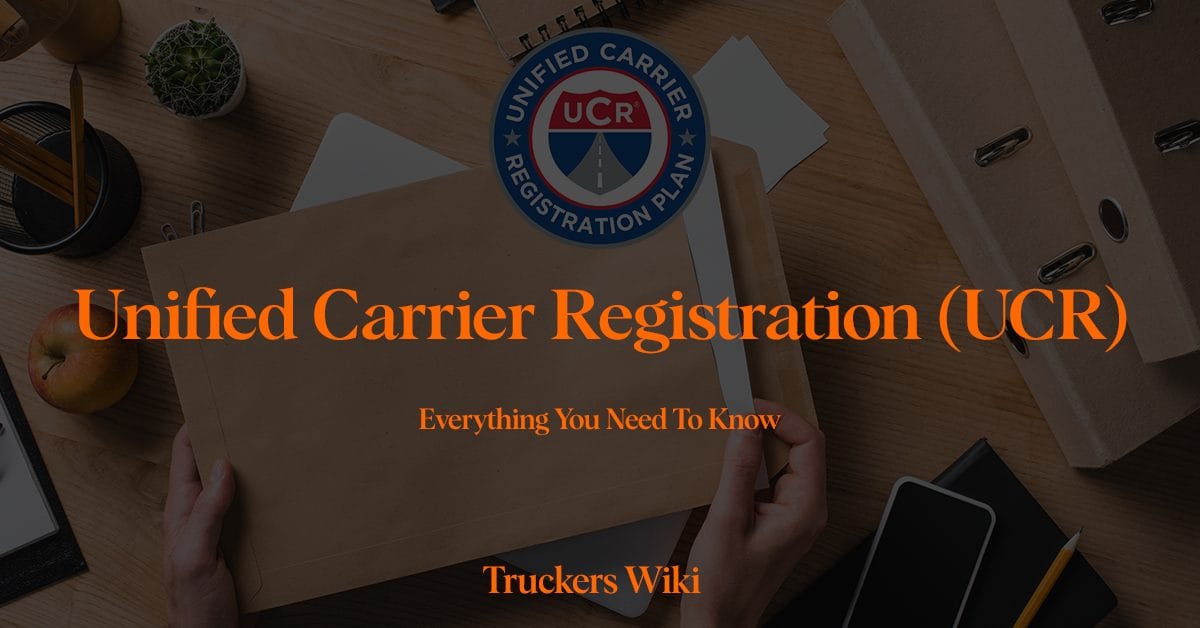
Table of Contents
What is Unified Carrier Registration Program (UCR)
The Unified Carrier Registration (UCR) program is a federal initiative designed for the annual registration of operators of commercial motor vehicles (CMVs) engaged in interstate and international commerce, alongside the collection of associated registration fees.
Established by the Unified Carrier Registration Act of 2005, the program aims to streamline the regulatory process for motor carriers, freight forwarders, brokers, and leasing companies by consolidating the registration requirements and fee assessments into a single, unified system.
Purpose and Scope
The primary goal of the UCR program is to ensure the financial responsibility and safety of motor carriers operating across state lines. By requiring carriers to register annually and pay fees based on the size of their fleet, the program supports state motor carrier safety efforts and enforcement activities. The UCR program applies to a broad range of commercial operators, including:
- Interstate motor carriers (both for-hire and private carriers)
- Freight forwarders
- Brokers
- Leasing companies
Entities that operate commercial vehicles in interstate or international commerce are required to participate in the UCR program, regardless of their size, type of cargo transported, or whether the vehicles are used for commercial purposes.
Administration and Compliance
The UCR program is administered by the UCR Board, comprising representatives from participating states, and is enforced by the Federal Motor Carrier Safety Administration (FMCSA). Registration and fee payment are facilitated through the UCR national online registration system or state-specific systems for states that participate in the program.
Registration Process
Registration for the UCR program is an annual requirement. The process involves:
Determining Applicability: Entities must first determine if their operations fall under the UCR program’s jurisdiction by assessing whether they engage in interstate or international commerce.
Calculating Fees: Fees are based on the total number of vehicles operated by the carrier. The UCR program provides a fee bracket system to determine the appropriate fees based on fleet size.
Submitting Payment: Payment of the determined fee can be made through the national UCR portal or through participating state websites.
UCR Fee Brackets
The Unified Carrier Registration (UCR) program for 2024 has set its fees based on the number of vehicles an entity operates. The fee brackets range from $37 for entities with 0 to 2 vehicles to $35,836 for those operating over 1,000 vehicles. This structured fee system applies to carriers and forwarders, ensuring that entities contribute to safety and enforcement programs relative to their fleet size.
| FEE BRACKET | # VEHICLES OWNED OR OPERATED | FEE PER ENTITY (CARRIER OR FORWARDER) | FEE PER ENTITY (BROKER OR LEASING COMPANY) |
|---|---|---|---|
| B1 | 0 to 2 | $37.00 | $37.00 |
| B2 | 3 to 5 | $111.00 | |
| B3 | 6 to 20 | $221.00 | |
| B4 | 21 to 100 | $769.00 | |
| B5 | 101 to 1,000 | $3,670.00 | |
| B6 | 1,001 + | $35,836.00 |
Compliance and Enforcement
Compliance with the UCR program is monitored through roadside inspections and audits. Non-compliance can result in fines and penalties, including the potential for operations to be halted until fees are paid and registration is completed.
Benefits and Impact
The UCR in trucking benefits the transportation industry and public safety in several ways:
Streamlined Administration: By consolidating the registration and fee collection process, the UCR simplifies compliance for carriers operating in multiple states.
Support for Safety Programs: Fees collected through the UCR program fund state motor carrier safety programs and enforcement activities, contributing to safer highways.
Financial Responsibility: The program ensures that carriers contribute to the costs associated with commercial vehicle regulation and enforcement, promoting a level playing field within the industry.

